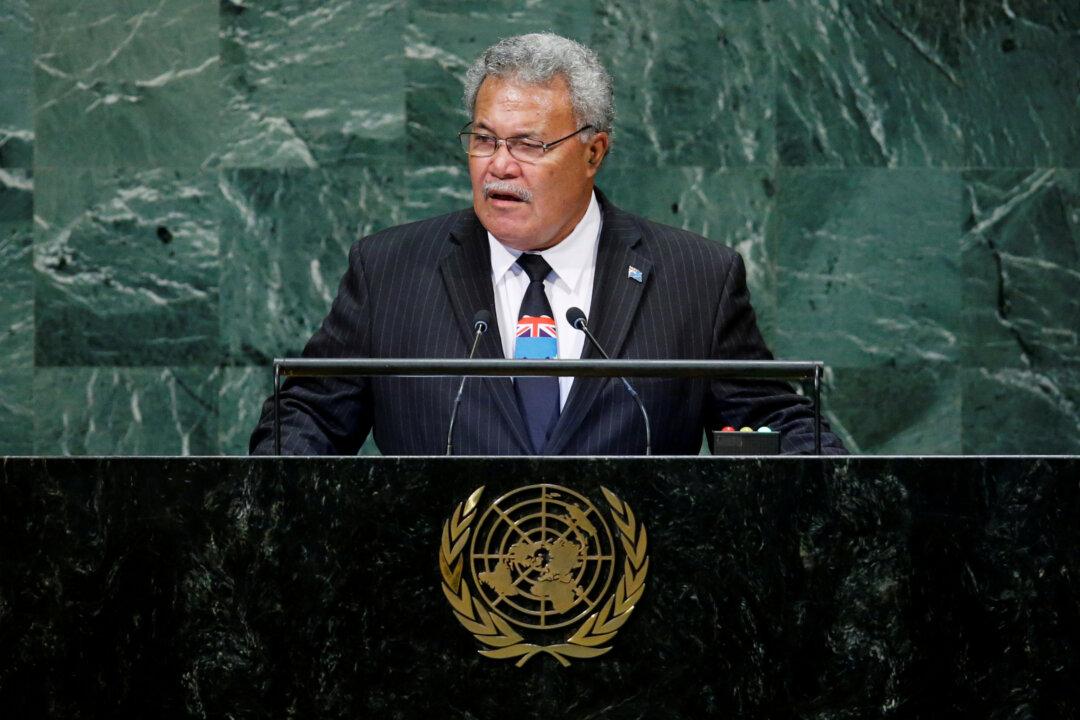Parliament in the tiny South Pacific country of Tuvalu elected a new prime minister on Sept. 19, making a change that some analysts say could give China a chance to further undermine Taiwan in a region that has been a pillar of support.
The surprise change in Tuvalu has lengthened the shadow over Taiwan’s standing in the South Pacific after the Solomon Islands earlier this week cut diplomatic ties with Taiwan, leaving it holding formal relations with just 16 countries.





